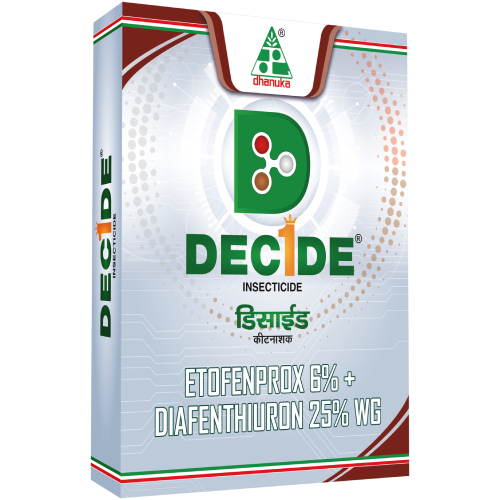Integrated pest management (IPM) is a comprehensive approach to preventing and managing plant diseases caused by various organisms like viruses, nematodes, fungi, and bacteria. This strategy involves several practices, such as selecting suitable plant varieties, ensuring proper plant care to reduce stress factors (e.g., irrigation, mulching, and fertilization), and using fungicides when necessary.
Fungicides are a type of pesticide designed to prevent, kill, or inhibit the growth of fungi on plants. It’s important to note that fungicides are not effective against bacteria, nematodes, or viral diseases. Fungicides can be categorized based on several factors:
- Mobility in the plant: There are contact fungicides (also known as protectants) that remain on the plant’s surface, creating a protective barrier to prevent fungal invasion. In contrast, systemic fungicides (or penetrants) are absorbed by the plant and can move within the plant to various parts.
- Preventive vs. curative: Preventive fungicides work by stopping the fungus from entering the plant and require direct contact with the fungus. They need re-application as new plant tissues develop or if the product is washed off. Curative fungicides, on the other hand, act after the plant is already infected, potentially halting the disease’s progression even after symptoms appear.Systemic fungicides can serve both preventive and curative purposes.
- Mode of action: This refers to how the fungicide affects the fungus. Fungicides can damage the fungus’s cell membrane, inhibit critical processes, or target specific processes within the fungus. To prevent the development offungicide resistance, it’s crucial to use fungicides with different modes of action, either by mixing them or alternating their use. In summary, IPM combines various strategies to manage plant diseases caused by different organisms, and fungicides play a role in this approach, with their effectiveness depending on factors like mobility, timing of application, and mode of action. Preventing resistance is essential for long-term disease management.
How do Fungicides Work?
Fungicides operate through various mechanisms to combat fungal infections. The most common approach involves damaging the fungal cell membranes, leading to the leakage of cytoplasm, organelles, and nutrients, ultimately killing the fungus. However, fungicides can also eliminate fungi by:
1. Inactivating critical enzymes: They disrupt vital enzymes necessary for the fungus’s survival.
2. Inhibiting protein production: Fungicides interfere with the fungus’s ability to create essential proteins.
3. Interfering with respiration: Some fungicides disrupt the fungal respiration process.
4. Inhibiting energy production: They hinder the fungus’s energy generation. Additionally, certain fungicides target specific metabolic pathways. For instance, phenylamide fungicides thwart RNA polymerase action in oomycetes,preventing cell division. Benzimidazole fungicides hinder the formation of beta-tubulin polymers, crucial in nuclear division.
While not technically fungicides, some newer products indirectly combat fungi by inducing systemic acquired resistance (SAR) in the host plant. These SAR inducers trigger biochemical pathways that activate the plant’s natural defense mechanisms, including the production of antifungal proteins.
DECIDE by Dhanuka
DECIDE, with its contact and stomach action, can effectively inhibit mitochondrial respiration and impact the nervous system of pests, resulting in an immediate knockdown effect and prolonged control. Decide 31% WG is a unique combination available in wettable granule form,specially designed for managing mites, thrips, and whitefly.
Key Features:
Offers broad-spectrum pest control.
Demonstrates high efficacy against sucking pests.
Provides long-lasting control.
Exhibits translaminar action, spreading within plant leaves.
Resists washing off in rain.
Incorporates innovative Blue Triangle chemistry, making DECIDE a valuable
component of Integrated Pest Management (IPM).
Promotes increased flowering and fruit setting.
Reduces the need for frequent insecticide sprays.
Conclusion
In conclusion, a holistic approach to plant health and pest management is essential for ensuring thriving crops and gardens. Integrated Pest Management (IPM) stands as a comprehensive strategy that addresses the challenges posedby various disease-causing organisms, including viruses, nematodes, fungi, and bacteria.Within the realm of IPM, fungicides play a vital role in combating fungal diseases that can harm plants. They operate through diverse mechanisms, from damaging fungal cell membranes to disrupting critical enzymes and metabolic pathways. Utilizing fungicides with different modes of action is crucial to prevent the development of resistance in these pathogens. Furthermore, products like DECIDE by Dhanuka exemplify the innovation in pest management.
DECIDE’s unique formulation, with contact and stomach action, not only targets pests effectively but also has a significant impact on their immediate knockdown and long-term control. Its versatility, translaminar action, and compatibility with IPM practices make it a valuable asset for those looking to protect their crops from mites, thrips, and whitefly. To know more about herbicides, fungicides, pesticides and Plant Growth Regulators visit our website www.dhanuka.com










